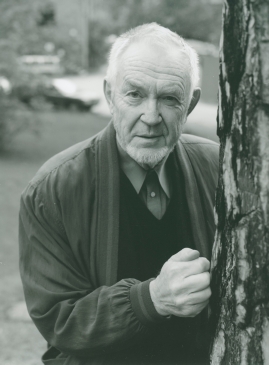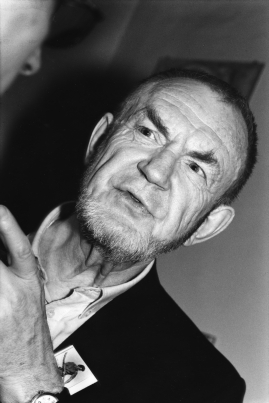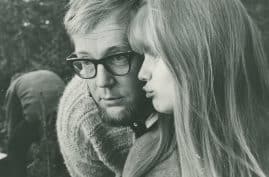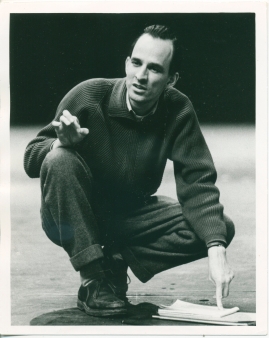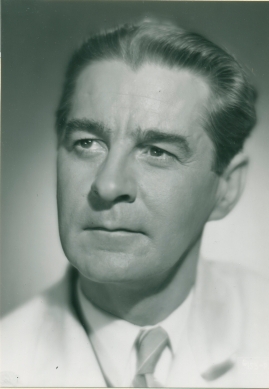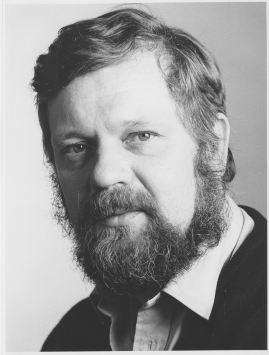Vilgot Sjöman
Table of contents
Basic facts
Media (5)
| Director |
|
|---|---|
| Screenplay |
|
| Show all films | |
| Awards |
|
Biography
Swedish director, screenwriter and author. Born David Harald Vilgot Sjöman in Stockholm. Died in Stockholm.-No one remained a promising young artist for as long as Vilgot Sjöman; nor was anyone as soon dismissed as a has-been. His career as author and filmmaker typified the new opportunities presented by the Folkhem [the Swedish Social Democrats’ vision of a welfare society where the classes collaborated in a middle way between capitalism and socialism]. With his recurring theme of the connection between personal and political emancipation, Sjöman...
Links and resources
Biography
Swedish director, screenwriter and author. Born David Harald Vilgot Sjöman in Stockholm. Died in Stockholm.
-
No one remained a promising young artist for as long as Vilgot Sjöman; nor was anyone as soon dismissed as a has-been. His career as author and filmmaker typified the new opportunities presented by the Folkhem [the Swedish Social Democrats’ vision of a welfare society where the classes collaborated in a middle way between capitalism and socialism]. With his recurring theme of the connection between personal and political emancipation, Sjöman embodied more than anyone the leftist political tendencies in the Sweden of the 1960s. He grew up as the son of a labourer on the proletarian Southside of Stockholm, graduated from gymnasium in 1945 and enrolled at the University of Stockholm. Throughout his student years, both in secondary school and later, he supported himself, as factory worker and prison guard, to name just a couple of his many jobs. The prison experience was useful in making You're Lying (Ni ljuger, 1969), his polemic film about the Swedish penal system.
In 1948, at the age of only 23, Sjöman published his first novel. This book, "Lektorn" ('The Lector'), was highly praised by critics and, in 1952, he adapted it for the screen. The film version, entitled Trots ('Spite'), was directed by Gustaf Molander. Three years later, in 1955, Sjöman went to the US to study film at UCLA on a scholarship. There he recorded his impressions in the acclaimed book, "I Hollywood" ('In Hollywood'), published in 1961. Throughout the fifties, he was also a prolific essayist and critic for such periodicals as Dagens Nyheter and Bonniers Litterära Magasin. During the same period he wrote plays for the stage and radio. In the sixties he was a familiar face on television, which inspired Ingmar Bergman to use him for a cameo appearance as a war correspondent at the front in the film The Shame (Skammen, 1968).
Ever since their student years Vilgot Sjöman and Ingmar Bergman were close friends. Bergman was to be Sjöman’s life long mentor and sparring partner, in script writing as well as directing. While completing his own directing debut, The Mistress (Älskarinnan, 1962), he worked as Bergman’s assistant director on Winter Light (Nattvardsgästerna, 1963). He recorded this project in the book "L136: Diary with Ingmar Bergman" ("L136: Dagbok med Ingmar Bergman").
As a film director Sjöman was part of a Swedish avant-garde, treating controversial subject matter in a form inspired by documentary and experimental films. In 1964 his film 491 set off a censorship debate when The National Board of Film Classification (Statens Biografbyrå) banned it for its violence and sex scenes. However, after an appeal to the ministry and some cuts by the production company Svensk Filmindustri, the ban was lifted. Also his I am Curious - Yellow (Jag är Nyfiken - Gul 1967) ran into some censorship trouble, although abroad this time and particularly in the United States. There, after the case was appealed to the Supreme Court which acquitted it from charges of obscenity, it became a precedent for the legalization of pornography. (Up until 1993 Sjöman’s film held the highest ticket sales record for non-English language films in the US).
Both of these films had obvious political agendas; attempting, like the films of contemporaries such as Bernardo Bertolucci, to mix Marx with Freud. It is hardly surprising that the conservatives regarded Sjöman as a pornographer, but even some leftists tagged him as a "sexualist" rather than a Socialist. In 1968 the film critic Jurgen Schildt summed up the responses with the words "coital communism, private objections and general approval". He added that, in his own opinion, very little was actually accomplished by repeatedly "having Börje Ahlstedt mount Miss Nyman in a one room flat on Stockholm’s Southside."
Sjöman retaliated with the agitation film You’re Lying and a politicized comedy, Blushing Charlie (Lyckliga skitar, 1970). The latter film proved popular with the audience but from the end of the 1960s his career was clearly on the decline.
Although he won prizes and critics’ acclaim with the working-class portrayal, A Handful of Love (En handfull kärlek, 1974) and Taboo (Tabu, 1977), a feature film about sexual minorities that made the headlines, his luck did not change. Audiences abandoned him and, from the mid-seventies on, so did the critics. His last five films, made between 1980 and 1995, were seen by a grand total of 33,518 people. The flop of Alfred (1995), his film biography of Alfred Nobel, costing $5,000,000 and thereby ranking as one of the most expensive feature films ever made in Sweden, put an end to Vilgot Sjöman’s film career.
In the years that followed, Vilgot Sjöman wrote his artistic testament in the form of four memoirs of his career as author and filmmaker: a trilogy entitled "Mitt personregister" (1997-2001) and a single volume called "Facit till mina böcker och filmer" (2004).
Michael Tapper (2011)
(translated by James Schmale)
Awards
| The Ingmar Bergman Award | Stockholm | 2003 | |||
|---|---|---|---|---|---|
| Festival Award | Taormina | 1975 | (bästa regi) | ||
| The Guldbagge Award | Stockholm | 1974 | Best Director | ||
| Chaplin Magazine Award | Stockholm | 1967 | |||
| Swedish Film Society Prize | Stockholm | 1966 | (manus och regi) | ||
| Stockholm | 1963 | (hedersdiplom) | |||
| Chaplin Magazine Award | Stockholm | 1962 |
Films
Original work
| Author |
|
|---|
Soundtrack listing
| Lyrics | |
|---|---|
| Composer |

